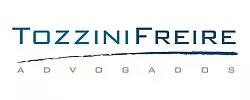Mining
On December 19, law No. 13,540/2017 was enacted. It was originated from executive order No. 789/2017 and its subsequent bill of law No. 38/2017. The new law changes several rules regarding the collection of the Financial Compensation for Mineral Exploitation (Compensação Financeira pela Exploração de Recursos Minerais – CFEM), known as the Brazilian mining royalty.
After the discussion in Congress, the final report modified some aspects of the executive order sponsored by the Federal Government, essentially regarding CFEM tax basis and rates.
Tax basis
Before the issuance of the mentioned executive order, the CFEM tax basis was the mineral products net sales, excluding taxes over the selling as well as transportation and insurance costs. Now, the tax basis will consider the gross revenue, excluding only taxes over the selling. If the mineral product is consumed by the company, from 2018 on, the CFEM may levy on the calculated gross revenue considering the products (or similar products) current prices in local, regional, national or international markets, according to each case. Alternatively, CFEM may levy on the reference price of the product obtained upon the processing of the minerals, according to the Brazilian mining authority’s discretion.
The Brazilian National Mining Agency (Agência Nacional de Mineração – ANM), that supervenes the National Department of Mineral Production (Departamento Nacional de Produção Mineral – DNPM), will establish the criteria when the miner consumes the mineral product, indicating the market price or the reference price. For the latter, the ANM must observe parameters set forth in a decree (not yet enacted), in order to apply higher reference prices for mineral deposits with higher grades.
For mineral water, CFEM will levy on gross revenues, excluding taxes over the selling, paid or offset, according to the tax regime adopted.
Rates
The CFEM rates suffered major changes. Rocks, sands, gravel, clay and other mineral products used directly in civil construction (also called construction aggregates), ornamental rocks, as well as mineral and thermal water are now levied on a 1% rate. Gold has now a 1.5% rate. Diamonds and other mineral products, on their turn, are now levied on a 2% rate, while bauxite, manganese, niobium and rock salt have a 3% rate.
The Government intended to create progressive rates for the iron ore, according to its international price. However, the report was modified in the House of Representatives and the progressive rates table was removed. Now, the iron ore has a fixed rate of 3.5%. The ANM is authorized to reduce iron ore’s rate to up to 2% for mineral deposits with feasibility compromised due to low grades, production scale, taxation or the number of employees.
The Congress also included a clause reducing the rates by half for tailings mineral exploitation.
The president Michel Temer vetoed a clause that established a 0.2% rate for gold and diamond in artisanal and small scale mining, gemstones and limestone for soil pH correction, potassium, rock salt, phosphate rocks and other substances used as fertilizers. Therefore, now the rates mentioned in the previous paragraphs also apply for these substances.
Leasing and civil liability
In the leasing of mining activities, the new rule sets forth the lessor’s subsidiary liability if the lessee fails to comply with its CFEM obligations. This should end with an old discussion between the DNPM and the mining companies, because the DNPM, through ordinances, demanded joint and several liability clauses in order to approve lease agreements.
Cities affected by mining enterprises
The Congress changed the distribution of mining royalties to grant a 15% share of the CFEM to the cities affected by mining enterprises. These cities are now entitled to the CFEM share if they are affected by railways or pipelines used for mineral transportation, or when they are affected by ports, tailings, waste dams or other facilities where the processing occurs.
Brazilian Mining Industry Renewal Program
The CFEM changes are part of the Brazilian Mining Industry Renewal Program announced in July by the Federal Government. The program also comprehends the executive orders No. 790/2017 and 791/2017 which, respectively, modified the Mining Code and created the ANM, supervening the DNPM. The changes to the Mining Code were not approved in the House of Representatives. On the other hand, the creation of the ANM was approved and awaits for the president to sign it into law.
The content of this article is intended to provide a general guide to the subject matter. Specialist advice should be sought about your specific circumstances.

